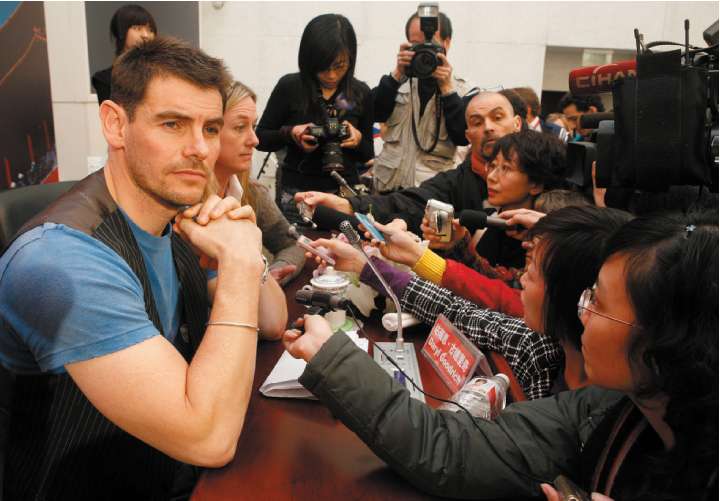British director defends Beijing Games film as 'art'

Daryl Goodrich, the British director whose video about young athletes helped clinch the 2012 Olympics for London, has defended his short film about the Beijing Games, insisting it was art, not propaganda.
Connections between film and the Beijing Olympics have assumed political dimensions since Steven Spielberg quit two weeks ago as adviser to the opening and closing ceremonies, saying his conscience would not allow him take part because of China's policy over the Darfur region of Sudan.
Goodrich, who once competed in karate, was one of several directors invited by the Chinese government to make a short film about preparations for the Games. His contribution to the Vision Beijing project was entitled Belief.
"Respect for human rights is absolutely essential wherever you are in the world, that's non-negotiable," he said. "Do I think it is a propaganda film? I think no. I've gone out to depict a story ... of dedication and passion from a very young age to very old." Asked if he was concerned that ordinary Chinese do not have freedom of expression, he said: "I can't comment."
A press conference to launch Vision Beijing on Saturday turned into a debate about the role of art in politics and what qualifies as propaganda.
The Hong Kong director Andrew Lau Wai-keung criticised Spielberg for quitting, especially so close to the Games, which run from 8 to 24 August. "I was shocked and surprised," said Lau, whose film Infernal Affairs was recently remade by Martin Scorsese as The Departed. "It's clear that the Olympics is all about sport and nothing to do with politics."
While avoiding criticising Spielberg directly, Chinese state media have attacked his decision and accused him of dragging the Olympics into the political arena.
The impact of Spielberg's move has been like a bombshell on the Beijing Olympic preparations, bringing the international spotlight to bear on China for failing to put pressure on the Sudanese government to stop the violence in Darfur.
Beijing has defended itself saying Spielberg had "ulterior motives" and that sport should be kept separate from politics. The gathered film-makers in Beijing delivered a similar message; that art should be kept separate from politics.
"Art should have nothing to do with politics," said the Iranian director Majid Majidi, whose 1998 film Children of Heaven was nominated for an Oscar. "On the contrary, art may be be undermined if it is connected with something like this."
Wang Hui, a spokeswoman for the Beijing Olympic Organising Committee, dismissed references to the films as propaganda, saying all governments used film for promotional purposes.
Britain's Foreign Secretary, David Miliband, who is visiting China this week, said political development and "the place of individual political and civil rights" within the Chinese system would be part of talks with his Chinese counterpart, Yang Jiechi. But he stressed he did not support an Olympic boycott.
"I do support engagement with China on the need to work together internationally to nurture the potential gains of globalisation. China depends on that co-operation; so do we," he said.
Subscribe to Independent Premium to bookmark this article
Want to bookmark your favourite articles and stories to read or reference later? Start your Independent Premium subscription today.

Join our commenting forum
Join thought-provoking conversations, follow other Independent readers and see their replies